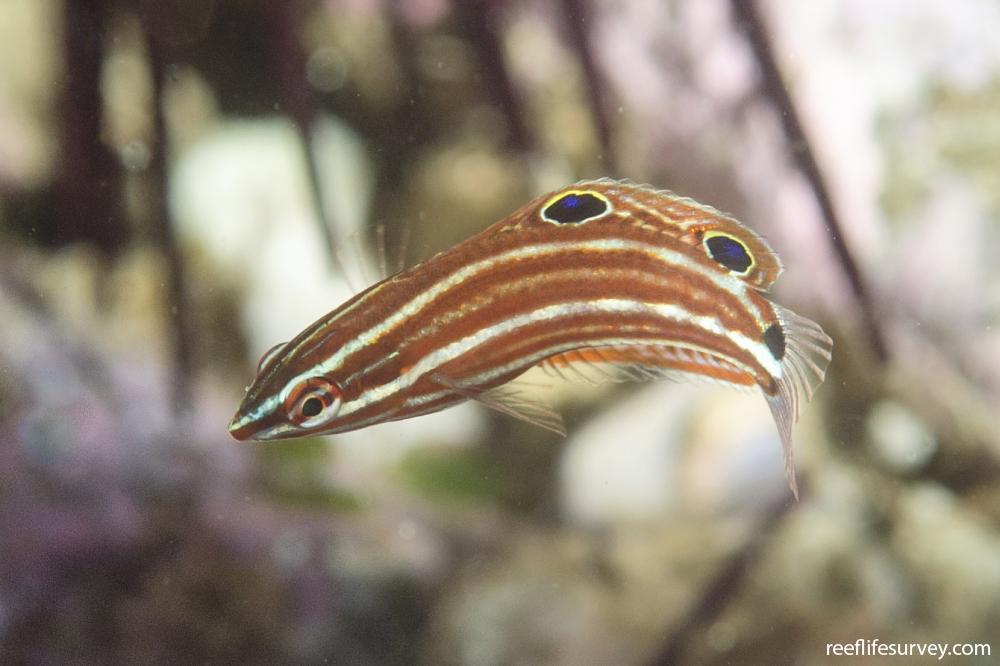Halichoeres biocellatus
False-eyed Wrasse | Biocellated Wrasse | Red-lined Wrasse | Two-spotted WrasseSimilar Species
Same Genus
Distribution
Temperate Australasia, Tropical Indo-Pacific
Description
Purplish body, orange and green stripes on head that extend rearward and disappear along body. Commonly seen with 2 ocelli on dorsal fin, although these are lost with age. Juveniles distinguished from H. marginatus (Dusky Wrasse) and H. melanurus (Hoeven's Wrasse) by having 3 dorsal fin ocelli and a black spot on the tail base.
Information
Max Size: 12 cm
Sea Temperature Range: 22.9-31.2°C
Depth: 6-35 m
Habitat Generalization Index: 19.64
Also referred to as the SGI (Species Generalisation Index), this describes the habitat niche breadth of the species. Species with values less than 15 are found in a relatively narrow range of reef habitat types (specialists), while those over 25 may be found on most hard substrates within their range (generalists). Learn more here.
Conservation and Rarity
IUCN Status: Least Concern
Occurrence: Common (26.0% of sites)
Occurrence describes how often the species is found on surveys within its distribution. It is calculated as the % of reef sites surveyed by RLS divers across all the ecoregions in which the species has been observed
Abundance: Few (4 per transect)
Abundance is calculated as the average number of individuals recorded per RLS transect, where present.
Edit by: Joe Shields




















































![Halichoeres sp. [orientalis]](https://images.reeflifesurvey.com/0/species_c9_574515caa4dd2.w400.h266.jpg)

